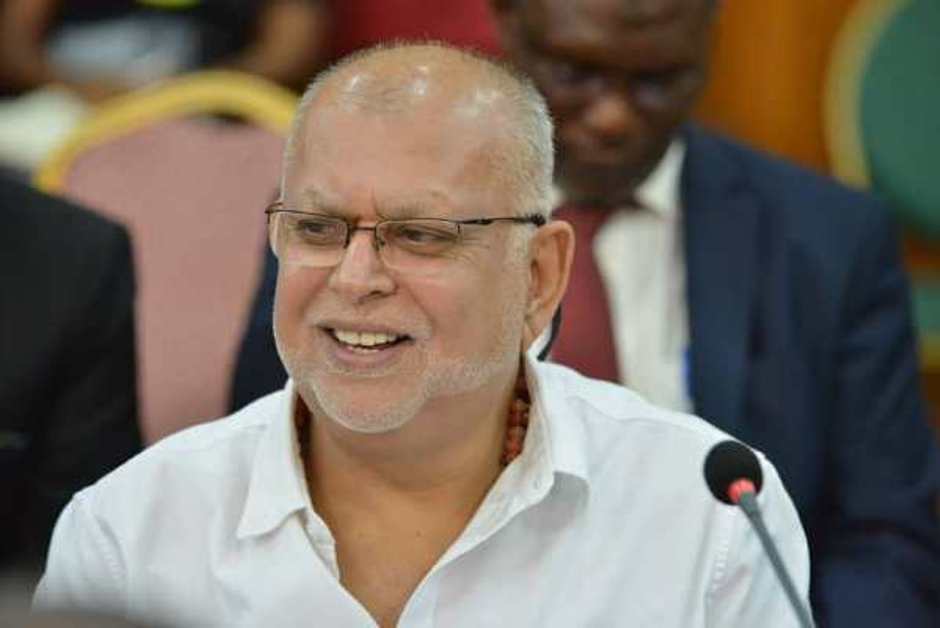Coca Cola Beverages Uganda in a campaign recently attempted to clear parts of Lake Victoria off plastic waste.
Small-scale farmers in different parts of the country have called for a complete ban on the construction of factories in wetlands, to protect water sources from contamination with hazardous waste.
The farmers, uniting under the Eastern and Southern Africa Small-scale Farmers’ Forum (ESAFF), say all wetlands along major highways are now littered with factories and fuel stations, despite President Yoweri Museveni’s continued directives against it. As the water bodies get contaminated, crops, livestock and persons who rely on them are said to be at risk of health complications arising from the consumption of the poisoned water.
Irene Nakijoba, a farmer in Mukono district wonders why the National Environment Management Authority-NEMA and other government agencies, have continued to allow fuel stations in wetlands, citing the many in her area, which release residue chemicals into the water, especially when it rains.
This was in line with the global events to mark World Food Day organised under the theme: Water is Life, Water is Food. Leave no one behind.
According to the Food and Agriculture Organization-FAO, while water covers about 71 per cent of the earth’s surface, only 2.5 of the water is fresh, suitable for drinking, agriculture, and most industrial uses.
Agriculture accounts for 72 per cent of the fresh water withdrawn globally from the bodies, yet, fresh water is not infinite.
Hakim Baliraine, the Chairman of the Board of ESAFF Uganda and ESAFF Africa, when water is contaminated, some plants take it whole, and with tubers like yams commonly grown in wetlands, it directly affects human health. He called for the closure of factories in wetlands or near water bodies if such factories have no waste treatment systems.
FAO says that with rapid population growth, urbanization, economic development, and climate change putting the planet’s water resources under increasing stress, freshwater resources per person have declined 20 per cent in the past two decades. At the same time, water availability and quality are deteriorating fast due to decades of poor use and management, over-extraction of groundwater, pollution and climate change.
Baliraine wonders why NEMA has failed to implement the president’s directives and recommendations on wetland protection, questioning whether the state agency can implement its mandate.
The farmers also called on the government to focus on promoting agro-ecology, a form of agricultural practice which is based on the interaction between plants, animals and humans to keep the environment healthy.
Speaking on the effects of chemicals in agriculture, Pangani Beatrice, a farmer from Kasese and leader of the Kasese District Small Farmers Forum, said in and around the Mubuku Irrigation Scheme owned by the government, nothing can grow without the use of chemicals.
She says this is what is likely to happen to the whole country unless the government encourages the move away from chemical fertilisers, pesticides and herbicides.
Margaret Masudio, a farmer in Adjumani and ESAFF Uganda Vice Chairperson, also called for agroecological farming to be promoted as part of the government’s priorities to protect the agriculture sector. This, according to her, also helps mitigate climate change effects and soil erosion, hence maintaining agricultural productivity, as well as enabling farmers to make their inputs from organic means.
Agriculture, Animal Industry and Fisheries Minister, Frank Tumwebaze pledged on behalf of the government, to continue to deliver policy instruments and interventions that support the value-chain development approach.
“We shall continue to invest in both physical and technological infrastructure to support research and breeding, disease control, extension services, precision farming and climate-smart agriculture practices,” said Tumwebaze, who represented Vice President Jessica Alupo at the national celebrations at the National Agriculture Research Organisation centre in Mukono.
-URN





